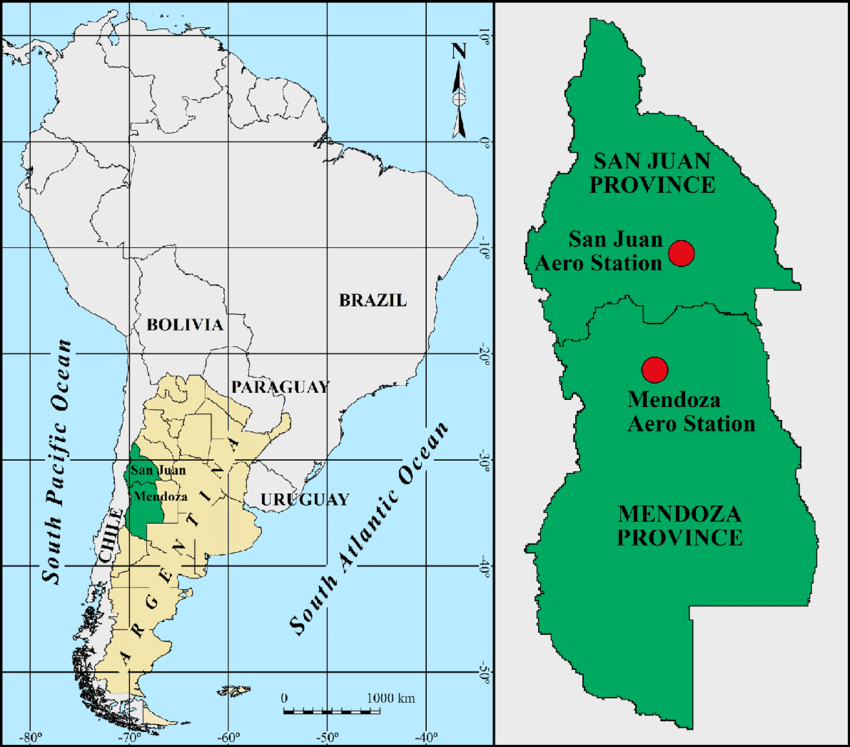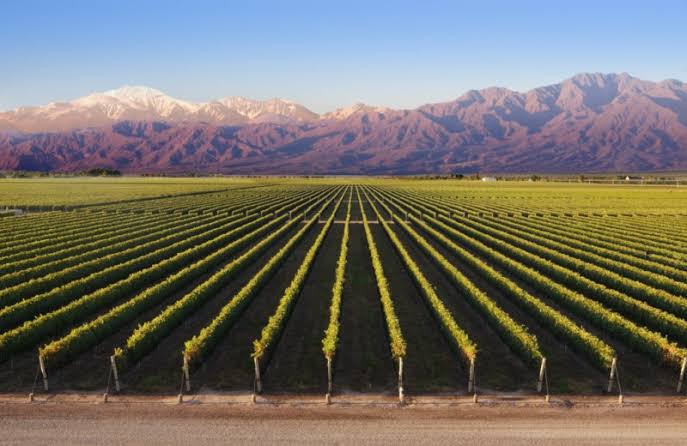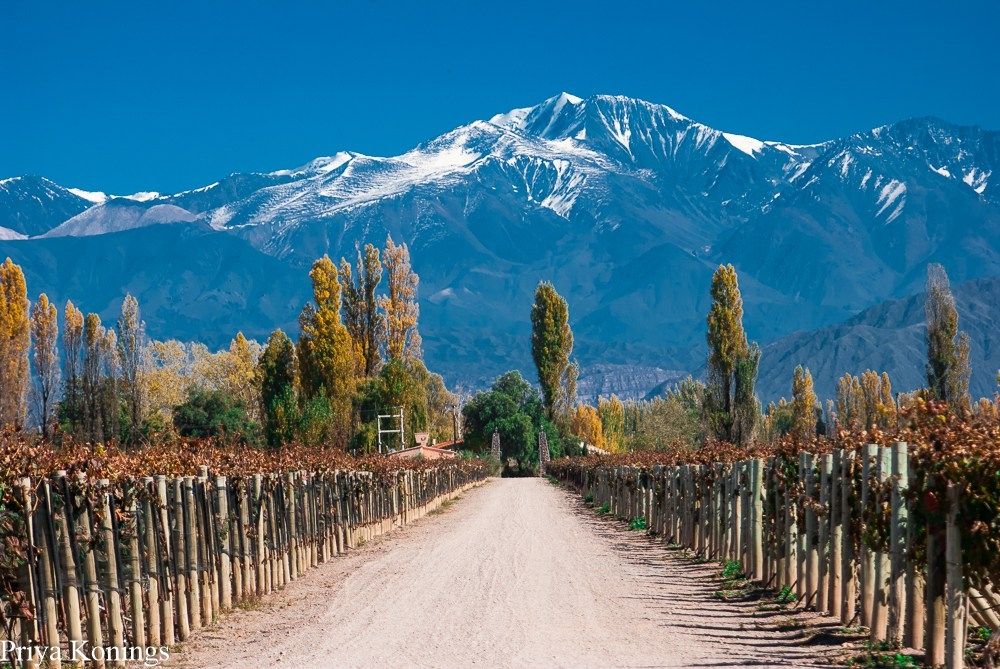RIO DE JANEIRO, BRAZIL – To recover most of the competencies ceded to the State or, in case of failure, to “leave” Argentina: these are the proposals of the “MendoExit”, a “movement” that questions Argentine federalism to the point of putting on the table the independence of the province of Mendoza, located in the west of the country and famed worldwide for its viticulture.

“The proposal is that in the next election, each political party, in a previous way, manifests the option of ‘I want to continue being Argentine, or I want to stop being Argentine’. This is very strong because it would be proposing to commit a crime,” the Mendoza legislator tells Efe, recalling that the Argentine Constitution prohibits the secession of any part of its territory and that no party, not even his own, would support the proposal.
THE ROOTS OF THE “MENDOEXIT
The “MendoExit” gained relevance in the national media in the middle of last year, when the former provincial governor (2015-2019) and current president of the traditional Radical Civic Union party, Alfredo Cornejo, stated in a radio program that Mendoza “has everything to live as an independent country.”
“The truth is that I do not like to separate us from the nation, but they are forcing Mendoza to assert itself in its own values and identities,” said Cornejo, upset by the paralysis in the construction of the Portezuelo del Viento hydroelectric dam, a megaproject located on the Grande river and which was rejected by four other provinces.
In addition to the economic interests of various local political and business groups, there are the tax grievances that, in the opinion of the supporters of the “MendoExit”, Mendoza suffers, as a consequence of a fiscal co-participation system that “harms” the region and that requires the consensus of the 24 jurisdictions to be modified, as it is a norm with constitutional rank.
“There is a strong inequality in the distribution of resources in Argentina, but this is a discussion that takes place in the National Congress (…). This requires a political organization from the province, to organize ourselves as a block and fight for economic issues, but very far from separating ourselves from the nation,” argues José Luis Ramón.
CREATION OF A POLITICAL PARTY
Mendoza’s possible independence is not only debated in high political spheres: shortly after the statements of the former provincial governor, thousands of Internet users positioned themselves in favor of this measure under the hashtag #MendoExit in allusion to the exit of the United Kingdom from the European Union.
One of the greatest exponents of this current of opinion is Hugo Laricchia, tourist businessman and leader of Éxito, a political party created at the beginning of this year, that aspires to be the electoral arm of “MendoExit” in the next provincial elections.

“We decided to constitute something 100% Mendoza and to fight for the autonomy of Mendoza, which is the one contemplated in the Constitution, with an addition: either they fulfill the contract, or we leave”, Laricchia assures Efe, adding that the scenario of a Mendoza independence “is not necessary”.
Thus, the autonomy demanded by Laricchia and his co-religionists covers different issues, such as the supremacy of provincial decrees over national ones, the concession of a provincial airline, and, of course, the end of a federal tax system that has created a “unitary in practice” state.
“The Nation has punished Mendoza for many decades”, says the businessman about a province that receives 4.1 % of the total amount collected by co-participation, the region with the seventh highest percentage despite having the fifth-largest population.
IS A REFERENDUM FEASIBLE?
In this sense, Laricchia argues that “nobody is asking if they want to continue being Argentine or stop being Argentine”, but rather the revision of the “contract” that links Mendoza with the rest of the country.
“If there are 80 or 90% of Mendoza citizens who do not resist this situation anymore, any scenario is possible”, Laricchia thinks.
In any case, Congressman José Luis Ramón confesses that his own proposal of popular consultation will not even be dealt with in the provincial Legislature, since no political party of the current parliamentary formation advocates Mendoza’s independence.
“Neither the radicalism, nor the Justicialist Party, nor Protectora is going to agree even to deal with our own project because the reality is that our party has the vision that Argentina remains a powerful State. That is not going to happen; there is no way it can happen”, the legislator confidently states.
Famed worldwide for its viticulture (with 70% of the 1.5 billion liters in Argentine wine production), the Mendoza economy (Argentina’s fifth largest) is, however, quite diversified. Its 2013 output was estimated at US$18.8 billion, or, US$10,758 per capita, below the national average, at a level similar to Turkey and above Mexico.
Covering an area of 148,827 km2, it is the seventh biggest province of Argentina with 5.35% of the country’s total area. The population for 2010 is 1,741,610 inhabitants, which makes it the fourth most populous province of the country, at 4.35% of the total national population.

Agriculture, to be sure (though 7% of the total economy), has long accounted for much of Mendoza’s foreign exchange earnings (followed closely by tourism, mainly from Chile). Besides wine, other important crops (mainly for the Argentine market) are apples, pears, tomatoes, onions, plums, olives, cherries, peaches and quince. Apiculture, with 30,000 beehives, is another growing activity favoured by Mendoza’s dry weather.
Mining is important to the Mendoza economy and has grown sharply in recent years, now accounting for 22% of output in 2005 (nearly 5 times the national average). Fourteen percent of the national reserves of petroleum are in Mendoza, also home to large-scale mining of limestone and uranium. Manufacturing has long contributed to the province’s prosperity and still accounts for 16% of the economy. Mendoza’s main industries are, of course, wine production with 1,200 wineries turning out 1.1 billion liters in 2005, followed by canned fruits, a large petroleum refinery (in Luján de Cuyo), cement and others.
With information from efe/dw/brb

